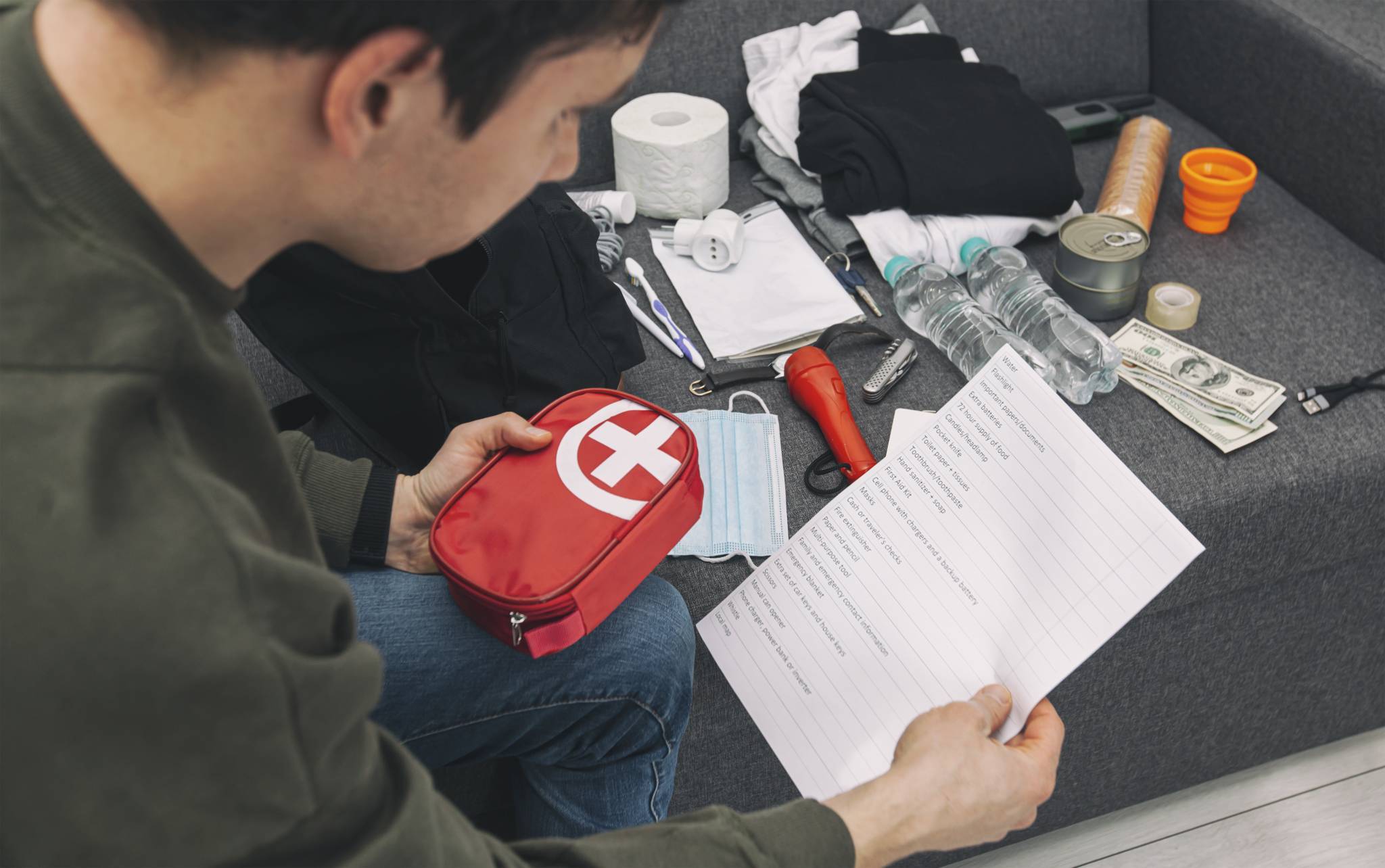By Stephanie Carlson
Disasters, whether natural or man-made, can strike at any time and affect anyone, anywhere. September is National Preparedness Month, offering the ideal opportunity to assess your family’s readiness. By following these tips, you can better prepare for unexpected events and gain peace of mind.
- Make an emergency plan and involve the whole family.
- Conduct a general hazard hunt. Go through your house and check for hazards before they become an emergency. Check your fire alarms to ensure they are working, install a carbon dioxide detector, label dangerous products and safely store them away from children, ensure stairways, porches, and walkways are lit, and be sure your house number is clearly visible.
- Prepare for an earthquake by removing objects from above beds. Secure large objects and furniture, and place heavy objects on lower shelves.
- Ensure your important documents, such as birth certificates, insurance policies, and financial records, are easily accessible.
- Assemble emergency preparedness kits and keep one at home, work, and school. The website https://www.ready.gov/build-a-kit offers printable instructions for a basic disaster supply kit.
- Identify emergency meeting spots and practice going there regularly.
- Know how to turn off the utilities to your home.
- Make sure at least one family member knows first-aid and CPR.
- Write down or memorize all family member’s contact information, including phone numbers and birthdates.
- Have a family communication plan. Review the plan often with all family members.
- Store a 3-month supply of foods your family regularly eats.
- Be sure to involve children and youth in preparedness efforts. It has been shown that youth who are involved experience less stress and anxiety during and after an emergency. They feel more confident, can take a leadership role when needed, and are effective at teaching people the importance of being prepared. They can play an important role in helping our families and communities deal with a disaster.
USU Extension has a preparedness website that includes information about drought, earthquakes, floods, heat, landslides, wildfires, windstorms, winter weather, food and water storage, and general preparedness information.
Additional resources can be found at beready.utah.gov and redcross.org.

